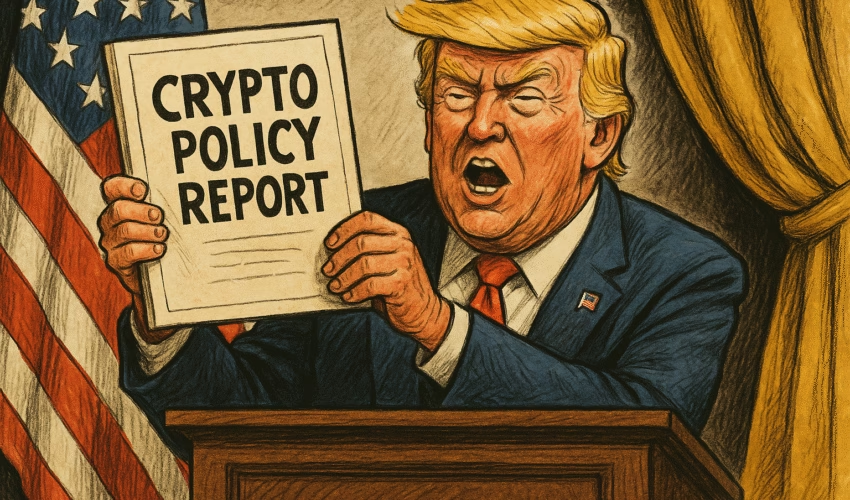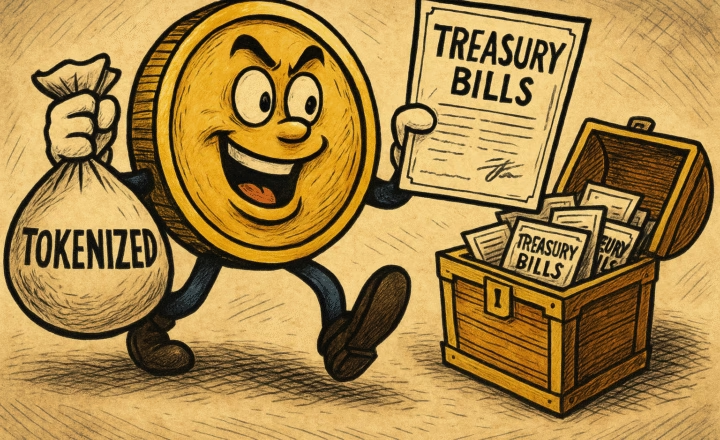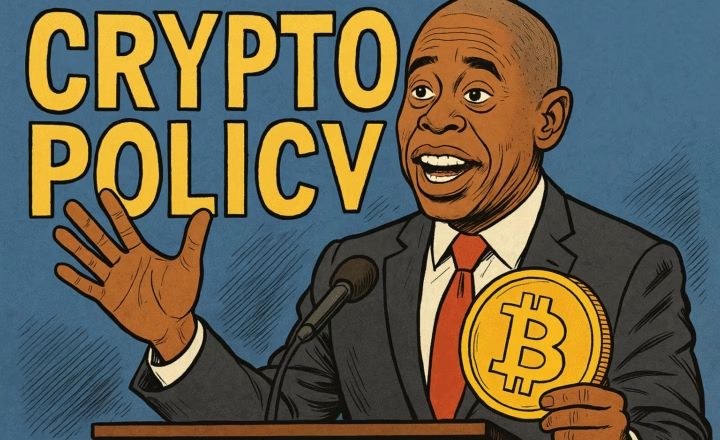Document Outlines Framework for Market Oversight, Banking Reform, Stablecoins, and Taxation
The Trump administration’s Working Group on Digital Assets has released its long-anticipated report detailing a comprehensive policy framework for regulating cryptocurrencies in the United States. The document addresses a wide range of issues, including market structure, regulatory jurisdiction, banking access, stablecoin policy, and crypto taxation, while reaffirming the administration’s support for U.S. dollar supremacy in digital finance.
Released on Wednesday, the report offers a set of coordinated recommendations designed to balance innovation, investor protection, and global competitiveness in the fast-evolving digital asset sector.
Defining Digital Asset Categories: Securities vs. Commodities
The report opens with a call to establish a formal “taxonomy” of digital assets to distinguish between securities and commodities. According to the working group, this classification is essential to eliminate ambiguity in regulatory enforcement and provide clarity to market participants.
The proposal recommends a shared oversight model between the Securities and Exchange Commission (SEC) and the Commodity Futures Trading Commission (CFTC). Under this model, the CFTC would have jurisdiction over spot markets for commodity-like crypto assets, while the SEC would regulate tokens deemed to be securities.
“A rational regulatory framework for digital assets is the best way to catalyze American innovation, protect investors from fraud, and keep our capital markets the envy of the world,” said SEC Chair Paul Atkins in response to the report.
The authors emphasized that a clear and unified market structure would help position the U.S. as a global leader in digital asset regulation.
Easing and Clarifying Crypto Banking Regulations
Another major focus of the report is banking reform, particularly in enabling regulated banks to offer custody and other digital asset services to customers.
The working group urged banking regulators to streamline the chartering process and make capital and operational requirements more transparent for institutions seeking to engage with crypto.
The recommendations reflect growing demand from traditional financial institutions to enter the digital asset space and offer crypto-related services, including custody, settlement, and payments.
Stablecoins and U.S. Dollar Hegemony
Stablecoins received special attention in the policy document, especially in the context of U.S. monetary leadership. The report underscores stablecoins’ potential to strengthen the role of the U.S. dollar in global finance—a sentiment that aligns with recent legislative moves, including the passage of the GENIUS Act earlier this month.
The report highlights one unique feature of stablecoins: the ability for issuers to cooperate with law enforcement in freezing and seizing assets tied to illicit activity—functionality that mirrors aspects of central bank digital currencies (CBDCs).
However, the working group reaffirmed its opposition to the development of a U.S. CBDC, encouraging Congress to pass the CBDC Anti-Surveillance State Act, which would formally ban research and development of a central bank-issued digital dollar.
“A unique feature of stablecoins is that stablecoin issuers can coordinate with law enforcement to freeze and seize assets to counter illicit use,” the report noted.
Establishing a Clear Crypto Tax Framework
Taxation of digital assets was also addressed in detail, with the report recommending that Congress adopt a custom-tailored tax regime for cryptocurrencies.
The proposal calls for legislation that would treat digital assets as a new class of property, subject to modified tax rules derived from existing frameworks for securities and commodities.
This would include specialized provisions for staking rewards, capital gains, and transaction-based taxation, providing clarity for both retail investors and institutional actors.
“Legislation should be enacted that treats digital assets as a new class of assets subject to modified versions of tax rules applicable to securities or commodities,” the report stated.
Collaborative Oversight and Next Steps
The report calls on Congress to support interagency collaboration, especially between the SEC and CFTC, and to pursue bipartisan legislation to address digital asset policy holistically.
While some of the recommendations echo previous policy positions held by the Trump administration, the document marks the most detailed effort yet to consolidate federal views on crypto oversight and growth.
Industry stakeholders are expected to closely examine the recommendations, particularly as the 2024 presidential election cycle brings new scrutiny to digital asset regulation and the future of financial innovation in the U.S.












